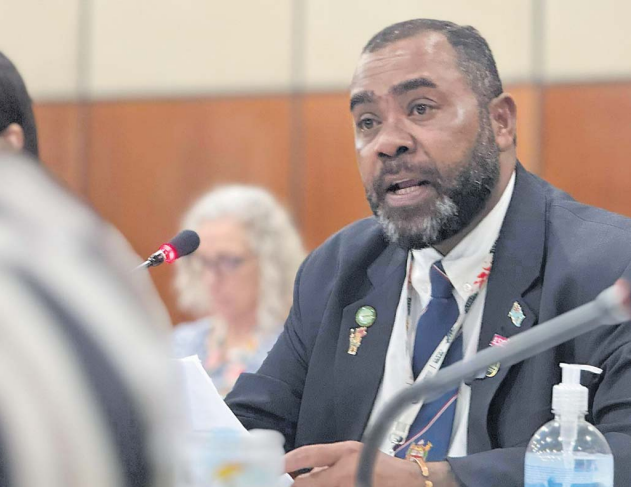LANDOWNERS in Fiji are being put at the centre of the forest-carbon efforts at COP30.
Addressing the Forest & Climate Leaders’ Partnership (FCLP) yesterday Minister for Environment and Climate Change, Mosese Bulitavu said he was working to clearly inform landowners about how carbon projects work and agree to them freely.
Mr Bulitavu said the Government wanted the landowners to receive a fair share of the benefits that come from using their land.
“Fiji is taking steps to ensure that our forest carbon programs, including REDD+, and emission reduction initiative are technically sound and socially just,” Mr Bulitavu said.
“We are working with landowners to secure transparency, free prior informed consent, and equitable benefit sharing for all participants in the carbon value chain.”
He highlighted that Fiji’s intergovernmental land-tenure commitment goes beyond policy, describing it as a promise to protect the rights of traditional custodians as the country transitions toward a low-emissions, climate-resilient future.
“It is a recognition that sustainable forest management and carbon stewardship cannot be achieved without empowering those who have protected these lands for generations.”
Mr Bulitavu acknowledged the support of indigenous communities, local leaders, development partners, and government officials who have contributed to shaping Fiji’s forest-carbon approach.
He said their collaboration was helping to build a foundation for a future.
“It is through strength and partnership that we are setting the foundation for a future where our land and people thrive.”
Team braces for late-night talks
THE Fiji delegation is preparing for negotiations to run late into the night after the COP30 Bureau approved extended hours, with some sessions scheduled to finish as late as 1am.
Ministry for Environment and Climate Change permanent secretary Dr Sivendra Michael said Fiji’s team was bracing for an intense period as technical consultations entered their final stretch.
“It’s currently 9pm and Fiji is still waiting for a revised text from the COP30 Presidency while multiple negotiations continued in parallel,” he said.
All informal discussions and contact groups must conclude by midnight.
He said the Presidency would then produce the next version of the negotiating text and begin “shuttle diplomacy” with key blocs, including the Alliance of Small Island States and its Pacific, Indian Ocean and Caribbean subgroups.
At the centre of talks is the “Montreal package,” which includes four unresolved items, among them Article 9.1 on finance for developing countries. “ Contention remains high as developing countries seek clarity on how commitments made in Baku last year … will be delivered,” Dr Michael said.
Another text is expected overnight, with Fiji’s negotiators likely to work into early morning.
The Bureau also raised concerns about late-night safety, food access and transport.
Brazil has promised updated security and extended bus services.



